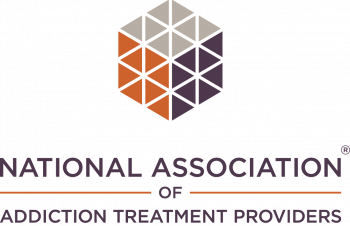Heroin is a highly addictive illegal drug produced solely for recreational purposes. To make heroin, morphine is mixed with sugar, powdered milk, quinine, or starch. This stretches out the dosage and increases the revenue stream for those who produce heroin illicitly. Heroin addiction often follows prescription drug addiction. Heroin addiction can have a number of severe long-term effects.
The Effects of Heroin Addiction
Using heroin even once puts you at risk for heroin use disorder. This highly addictive drug derives from morphine, made from the seedpods of poppy plants. Because the withdrawal symptoms of heroin include particularly uncomfortable side effects, we encourage those who struggle with heroin abuse to seek heroin addiction treatment following a supervised medical detox program. Learn more about the effects of heroin addiction on your brain, body, and life.
1. Heroin’s Effect on the Brain
The rise of heroin addiction corresponds with the increasing use of opiates and opioids in the United States. As a result of the heroin epidemic, we treat more and more clients with heroin use disorder.
This insidious drug releases opioid chemicals that bind with your brain’s opioid receptors. Although heroin is a purely recreational drug, other opioids offer relief from chronic pain. By binding to the opioid receptors in the brain, heroin and other opioids trigger the release of neurotransmitters such as dopamine, which provides a sense of relaxation and painlessness.
If you continue using heroin, your brain begins to stop producing its own dopamine. This impacts the brain’s risk and reward system. However, your brain continually decreases its own production of serotonin and dopamine, complicating the recovery process.
2. Tolerance Due to Heroin Abuse
Your body quickly builds up a tolerance to heroin, and this process occurs more quickly with heroin than other drugs. In the face of the drug’s painkilling ability, your body reacts differently than it does with other substances.
Other drugs usually desensitize your chemical receptors. With heroin, opioid receptors in the brain remain sensitive to the drug, but your pain sensitivity actually increases with continued heroin abuse. This means that you need more of the drug for the same effect over time, and the cravings worsen.
3. Long-Term Addiction
Theoretically, you can become addicted to heroin after a single-use. Using the drug over time leads to heroin addiction and severe consequences to your mind and body. Heroin abuse creates a dependence on the drug, and if you try to stop using it on your own, you may experience excruciating pain and other side effects.
Withdrawal systems from heroin abuse include the following:
- Muscle pain
- Cold flashes
- Bone pain
- Insomnia
- Restlessness
- Diarrhea
Our heroin addiction treatment center provides a safe place for you to learn coping mechanisms for cravings and triggers. This can make the difference between a successful recovery and relapse.
4. Physical Effects of Heroin Abuse
Long-term heroin addiction affects your entire body.
Side effects of extended heroin abuse include:
- Insomnia
- Irregular menstrual cycles
- Constipation
- Kidney diseases
- Sexual dysfunction
Our men’s and women’s drug rehab programs can help you find your way back to health and happiness.
5. Heroin Epidemic and Impact on Relationships
Examples and signs of broken relationships due to heroin addiction include the following:
- Broken marriages
- Destruction of the family unit
- Lost friendships
- Domestic violence
- Loss of child custody
- Child abuse
- Financial problems that affect your loved ones
Heroin Addiction Treatment in Maryland
TruHealing Gaithersburg in Maryland offers different options for heroin addiction treatment, such as the following:
- Partial hospitalization program
- Outpatient treatment program
- Intensive outpatient program
- Aftercare program
The therapists and medical staff at TruHealing Gaithersburg have extensive experience assisting clients with heroin addiction. You can do this, and you don’t have to feel alone throughout the challenging process. To break the cycle of heroin abuse, contact us at (833) 625-0398 to speak with an intake counselor today.









